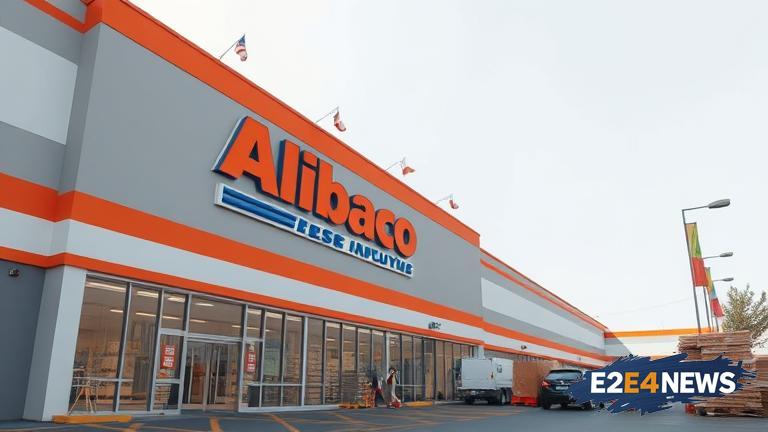Alibaba Group, the Chinese e-commerce giant, has announced that it will be closing its membership-based wholesale stores in China, similar to Costco. The decision comes as the company faces increasing competition from other e-commerce companies in the country. The stores, which were launched in 2018, offered a wide range of products, including fresh produce, meat, and household essentials, at discounted prices to members. However, despite initial success, the stores have struggled to gain traction in recent years. The closure of the stores is seen as a strategic move by Alibaba to focus on its core e-commerce business and improve profitability. The company has been investing heavily in its New Retail strategy, which aims to integrate online and offline shopping experiences. The closure of the stores will not affect Alibaba’s other businesses, including its e-commerce platforms, payment services, and cloud computing. The company will continue to operate its other retail formats, including its Hema Fresh stores, which offer a combination of online and offline shopping experiences. The closure of the stores is also seen as a response to the increasing competition from other e-commerce companies, including JD.com and Pinduoduo. These companies have been expanding their presence in the Chinese market, offering competitive prices and services to customers. Alibaba’s decision to close its Costco-like stores is also seen as a sign of the company’s efforts to streamline its operations and focus on its core strengths. The company has been facing increasing pressure from investors to improve its profitability and return on investment. The closure of the stores is expected to have a minimal impact on Alibaba’s overall revenue and profitability. However, it is seen as a significant move by the company to adapt to the changing market landscape and consumer behavior. The Chinese e-commerce market is highly competitive, with several players vying for market share. Alibaba’s decision to close its Costco-like stores is seen as a strategic move to focus on its core strengths and improve its competitiveness in the market. The company will continue to invest in its New Retail strategy, which aims to integrate online and offline shopping experiences. The strategy has been successful in driving sales and improving customer engagement. Alibaba’s closure of its Costco-like stores is also seen as a sign of the company’s efforts to improve its operational efficiency and reduce costs. The company has been facing increasing pressure from investors to improve its profitability and return on investment. The closure of the stores is expected to have a positive impact on Alibaba’s bottom line, as it will help the company to reduce its operational costs and improve its profitability. In addition to its e-commerce business, Alibaba also operates a range of other businesses, including payment services, cloud computing, and digital media. The company’s payment services, including Alipay, are widely used in China and have helped to drive the growth of the country’s e-commerce market. Alibaba’s cloud computing business has also been growing rapidly, as more companies in China move their operations online. The company’s digital media business, including its video streaming service, Youku, has also been successful in attracting users and driving revenue. Overall, Alibaba’s decision to close its Costco-like stores is seen as a strategic move by the company to focus on its core strengths and improve its competitiveness in the market. The company will continue to invest in its New Retail strategy and other businesses, as it seeks to drive growth and improve profitability.





